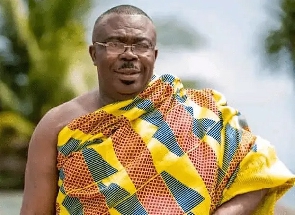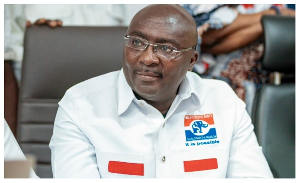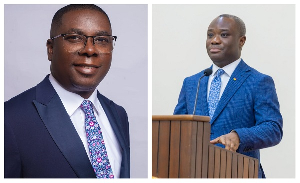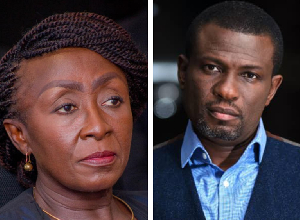Chieftaincy holds a significant place in the cultural fabric of Ghana, serving as a key institution that preserves and represents the Ghanaian identity and connects the people to their ancestral roots.
As a nation with a rich history and diverse ethnic groups, chieftaincy has remained a pillar of social, political, and cultural life for centuries.
Amidst modernization and globalization, surviving the exploitative British imperialism of the nineteenth century and has endured both civilian and military post-Independence, chieftaincy stands as a resilient force, embodying Ghana's heritage, values, and traditions.
This article explores the enduring role of chieftaincy in Ghana and its contribution as the one force preserving the Ghanaian identity.
Article 277 of the 1992 constitution of Ghana provides that, a chief is a person who hailing from the appropriate family and lineage has been validly nominated elected or selected and enstooled, enskinned as a chief or queen mother in accordance with the relevant customary law and usage enstooled.
Chiefs, as custodians of cultural heritage, customs, traditions and history through the rituals and symbols serve as living embodiments of their respective ethnic groups as well as intermediate between the living and the dead.
They ensure the preservation of indigenous languages, traditional practices, and communal values. Through their authority and leadership, they instill a sense of pride and belonging among Ghanaians, fostering unity and cohesion while playing pivotal roles in governance, conflict resolution, and the maintenance of social order within their respective communities.
Beyond cultural preservation, chieftaincy plays a vital role in community development and welfare. Chiefs act as intermediaries between the government and their communities, advocating for their needs and interests. They provide leadership, settle disputes, and promote social cohesion within their jurisdictions using well laid down customs.
Through their position, chiefs support education, healthcare, infrastructure and agriculture development initiatives, contributing to the socio-economic progress of their communities. Chieftaincy, therefore, acts as a catalyst for local development and upliftment in alignment with the values and aspirations of the community, fostering a sense of ownership and collective progress.
Chieftaincy serves as a symbol of Ghanaian cultural diplomacy, both domestically and internationally. The colorful festivals, traditional rites, and regalia associated with chieftaincy has been another way of preserving our unique identity while promoting Ghana's rich cultural heritage. Additionally, chiefs often participate in diplomatic engagements, representing their communities and fostering relationships with other nations.
Ghana's transition to democracy in the 1990s saw the formal recognition of chieftaincy as a key institution in the country's governance structure. Chiefs now hold advisory roles in local government and participate in decision-making processes. Their influence extends beyond cultural matters to areas such as land tenure, resource management and conflict resolution.
By incorporating traditional leadership into the modern political framework, Ghana has successfully maintained political stability while preserving its cultural roots.
While Ghana has experienced significant societal changes due to modernization, urbanization and globalization, chieftaincy has remained a steadfast force, adapting to the evolving needs of society. Chiefs have embraced new technologies and integrated modern practices while still upholding traditional values.
This adaptability demonstrates the resilience of chieftaincy as an integral part of the Ghanaian identity, capable of navigating the complexities of the modern world without losing its essence.
To conclude, it is evidentially certain that, Chieftaincy stands as the last semblance of the Ghanaian identity, embodying the country's rich cultural heritage, traditions, and values. In a rapidly changing world, where globalization and modernization often challenge traditional institutions, chieftaincy has demonstrated remarkable resilience.
By preserving cultural heritage, fostering community development, contributing to political stability, and promoting tourism, chieftaincy continues to play a vital role in shaping and safeguarding Ghana's identity. It remains an enduring symbol of the nation's unity, diversity, and pride.
Opinions of Friday, 2 June 2023
Columnist: Francis Marley



















